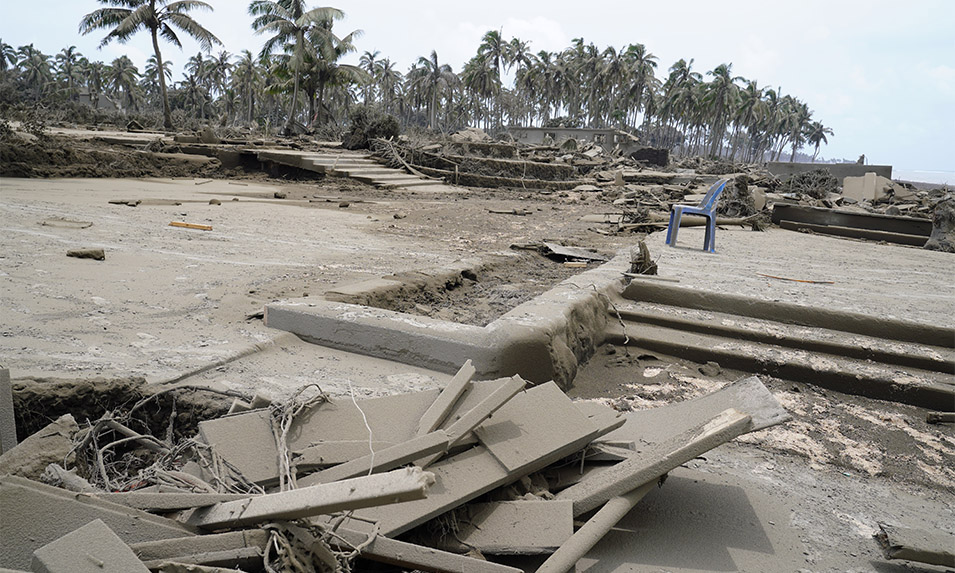
Tonga’s economy is performing strongly but faces growing headwinds, the International Monetary Fund (IMF) stated in its country report for Tonga published on 3 November.
The post-HTHH recovery in FY2023 (July 2022‒June 2023) has been driven by strong domestic demand and a pickup in tourist arrivals since the border reopening in August 2022, it said.
“However, supply-side constraints resulting from severe labour shortages [due to worker migration] and damaged tourism facilities are acting as substantial drags on the recovery and have intensified inflation pressures.”
In concluding its Article IV consultation with Tonga and endorsing the staff appraisal, the Executive Board of the IMF in Washington, DC, stated that the Tongan economy is underpinned by resilient remittance inflows and major reconstruction activities following the Hunga-Tonga Hunga-Haʻapai (HTHH) volcanic eruption in January 2022.
“The authorities’ bold policy support measures, together with aid from the international community and the IMF’s emergency financing under the Rapid Credit Facility, were instrumental in mitigating the socioeconomic fallouts,” the IMF said.
Significant uncertainties
“While the economic recovery is expected to continue in the short term, the outlook is subject to significant uncertainties. Growth in FY2024 is projected at 2.5 percent, led by public investment.
“Although tourism-related services are recovering, tourism receipts as a share of GDP are anticipated to remain below pre-pandemic levels until FY2026 due to slow reconstruction of damaged facilities.
“The recovery in agricultural production is expected to proceed slowly, reflecting labour shortages and bad weather due to El Niño.
“Tonga’s long-term growth is projected at 1.2 percent, given its exposure to increasingly frequent natural disasters, persistent loss of workers to emigration, and limited economies of scale due to geographical barriers.”
Executive Board Assessment
Under Article IV of the IMF's Articles of Agreement, the IMF holds bilateral discussions with members, usually every year. A staff team visits the country, collects economic and financial information, and discusses with officials the country's economic developments and policies. On return to headquarters, the staff prepares a report, which forms the basis for discussion by the Executive Board.
The IMF reported that despite sizable remittances, continued grants, and a rebound in tourist arrivals, Tonga's current account deficit is estimated to have widened in FY2023 due to higher import needs for reconstruction-related capital goods.
“Nevertheless, foreign exchange reserves continued to increase, supported by official capital transfers and the Rapid Credit Facility disbursement in July 2022.
“The current expansionary fiscal stance is appropriate, given the need to expedite reconstruction and protect the most vulnerable. Under the authorities’ FY2024 budget, the primary balance for FY2024 is expected to revert to a deficit, reflecting lower external grants and continued implementation of public reconstruction projects.
“Considering the authorities’ limited administrative capacity and prevailing inflation pressures, the execution of budget should focus on priority areas such as reconstruction and social protection, while non-urgent spending should be postponed,” the IMF recommended.
High risk of debt distress
They said that Tonga is assessed as being at high risk of debt distress without new grant commitments, and sizeable external debt repayments in the coming years would further strain its public finances.
“Gradual fiscal adjustments over the medium term involving additional tax revenue mobilization and reductions in current expenditures, are crucial to achieve Tonga’s development objectives in a fiscally sustainable manner, together with securing grants in line with historical levels. Enhancing spending efficiency and fiscal transparency can help achieve the necessary fiscal adjustments and mitigate the growth impact.
“Further monetary policy tightening is warranted to contain inflation pressures. Despite the increase in the statutory reserve deposit ratio and other measures taken in early 2023, banking system liquidity remains abundant, limiting the impacts on bank lending and aggregate demand. Given the significant inflation pressures, monetary policy needs to be tightened further, including by increasing the policy rate, combined with additional liquidity absorption measures. Resuming issuance of National Reserve Bank of Tonga (NRBT) notes and strengthening NRBT’s operational independence can help foster financial market development and improve the monetary policy framework. The current currency basket-weight system has served Tonga well.
Increase in non-performing loans
More proactive measures are required to tackle banks’ asset quality risks. Given the recent increase in non-performing loans (NPLs), the authorities should consider requiring banks to adopt a more conservative provisioning approach and to submit concrete plans for NPL reduction. The NRBT should also enhance its risk-based supervision and broaden its regulatory and supervisory remit to cover non-bank financial institutions.
The IMF also recommended:
- Comprehensive structural reforms aimed at enhancing climate resilience and nurturing the private sector are essential to boost Tonga’s low growth potential.
- Stricter enforcement of Building Codes and facilitating relocation of properties to safer grounds would enhance Tonga’s disaster-resilience.
- Reducing gender inequality and augmented public investment in training and education will help tackle labor shortages.
- A strong government-wide drive to accelerate the adoption of digital technologies, notably in public administration, as well as continued efforts to cut red tape and to strengthen the AML/CFT framework, are also important in this regard.
- Ample fiscal resources should be allocated to ensure production of timely and more reliable macroeconomic statistics.
Tonga: 2023 Article IV Consultation-Press Release; and Staff Report



